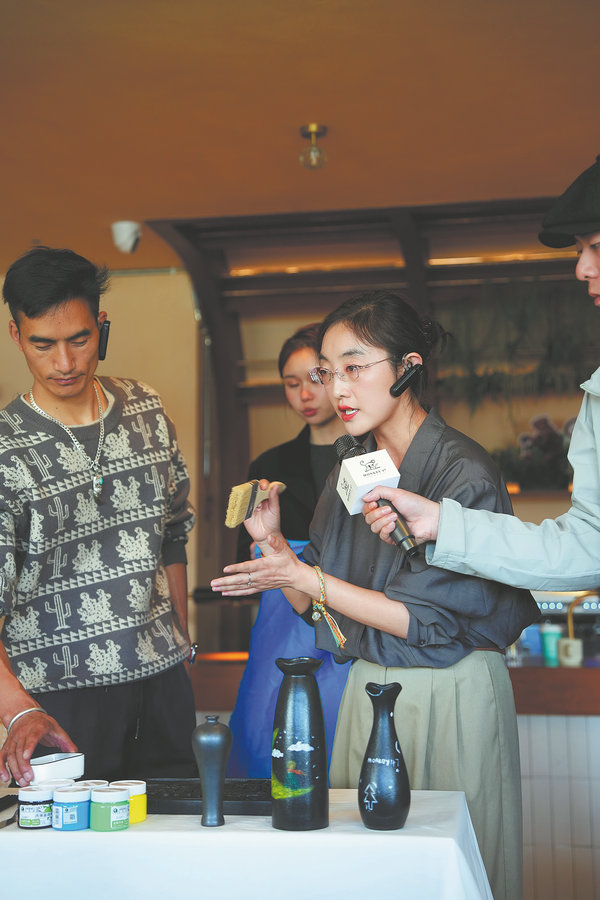

As the winter breeze rustles the trees, the views from the windows at Aumont frame swaying reeds, a rippling lake, towering mountains and clear skies.
Isolation from the hustle and bustle of the city and immersion in the serenity of nature is a powerful potion for peace of mind at this homestay on the banks of Lugu Lake in Lijiang city, Yunnan province.
With its mix of medieval European style and ethnic elements in the form of rammed earth and a wooden structure, the homestay has captured the hearts of many travelers who have sought an off-the-beaten-track experience since it opened in May 2022.
"More than 80 percent of our rooms were booked for New Year's Day," says Han Xiao, who opened the homestay with her husband, who was born on shores of the lake. The pair felt that opening a guesthouse would be fun and meaningful.
Since Lugu is an important habitat for migrating birds, they have arranged bird viewing opportunities for guests.
"When night comes, it is a great place for stargazing, as well," says Han, who is originally from Xi'an, capital of Shaanxi province.
Before opening the guesthouse, the woman in her 30s worked in investment for nearly a decade. The couple named their homestay Qiushan in Chinese, meaning "autumn mountain", which was shortened to become Aumont in English, as they feel Lugu is at its most ethereal and untouched in the autumn. "The season fully captures the atmosphere and is our favorite," Han says.
Her intention was to create a small but beautiful guesthouse and involved two main considerations: integrating with the environment and making use of local materials. Each room has its own balcony and large floor-to-ceiling windows that face Lugu Lake and the Gemu Goddess Mountain, which is also known as Lion Mountain, that towers over the landscape.
"We wanted to bring these natural views into the rooms as much as possible, so that guests could remain connected to nature throughout their stay," Han says.
She made a point of limiting the size of the guesthouse. "We wanted to thoughtfully consider every corner and item to give guests a warm, homelike feeling," she adds.
The homestay has 16 rooms, each with a view of nature, and equipped with mod cons. "We hope that guests will not only find physical rest, but also peace for their souls," Han says.
Her homestay is one of many in Lugu that have ridden the rising wave of tourism. Homestays began to appear in the area in the 1990s and there are around 370 today.
Zhang Min, general manager of the 33-room Lanyue hotel, which is a 30-minute drive from the Aumont, says that most guests stay for at least four to five days.
Many from Chengdu, Sichuan province, Chongqing, Beijing and Shanghai are drawn to Lugu by the lake's slow pace of life, spend their time drinking coffee, reading and enjoying the sun amid beautiful surroundings, Zhang adds.
Han says that many customers revisit the homestay, sometimes three or four times, and they have a good number of referrals, even though it isn't easy to reach Lugu Lake.
The couple have also developed hiking trails to give guests a deeper connection with nature and have them interact with ethnic groups, such as the Mosuo, a branch of the Naxi ethnic group, and make prayer flags, tea, and weave cloth.
Many of the guests have become friends of the couple, among them Hua Ying.
"After a morning workout, enjoying a bowl of hot rice noodles with a view of distant mountains and the sacred lake evokes a sense of peace that lasts the whole day," says the woman from Shaoxing in Zhejiang province.